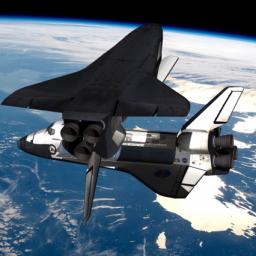
Ars Technica writer
Lee Hutchinson , who worked for NASA during the
Columbia incident , writes about the 2003 destruction of the shuttle Columbia, and the questions asked afterwards. Could the disaster have been anticipated? If so, could a rescue have been performed before the shuttle's incredibly destructive re-entry? The answers to those questions hatched an incredible plan - and changed the way NASA handles shuttle missions to this day. It's worth a read not only for the historical perspective, but also for the account of practical project planning and the immense scope of such an endeavor. He calls it
the untold story of the rescue mission that could have been NASA's finest hour .
 Ars Technica writer Lee Hutchinson , who worked for NASA during the Columbia incident , writes about the 2003 destruction of the shuttle Columbia, and the questions asked afterwards. Could the disaster have been anticipated? If so, could a rescue have been performed before the shuttle's incredibly destructive re-entry? The answers to those questions hatched an incredible plan - and changed the way NASA handles shuttle missions to this day. It's worth a read not only for the historical perspective, but also for the account of practical project planning and the immense scope of such an endeavor. He calls it the untold story of the rescue mission that could have been NASA's finest hour .
Ars Technica writer Lee Hutchinson , who worked for NASA during the Columbia incident , writes about the 2003 destruction of the shuttle Columbia, and the questions asked afterwards. Could the disaster have been anticipated? If so, could a rescue have been performed before the shuttle's incredibly destructive re-entry? The answers to those questions hatched an incredible plan - and changed the way NASA handles shuttle missions to this day. It's worth a read not only for the historical perspective, but also for the account of practical project planning and the immense scope of such an endeavor. He calls it the untold story of the rescue mission that could have been NASA's finest hour .
It's sad that the shuttle program ended; it was a fantastic machine. But I'm excited to see companies like SpaceX fill the gap, and probably do things that NASA needs better and cheaper.